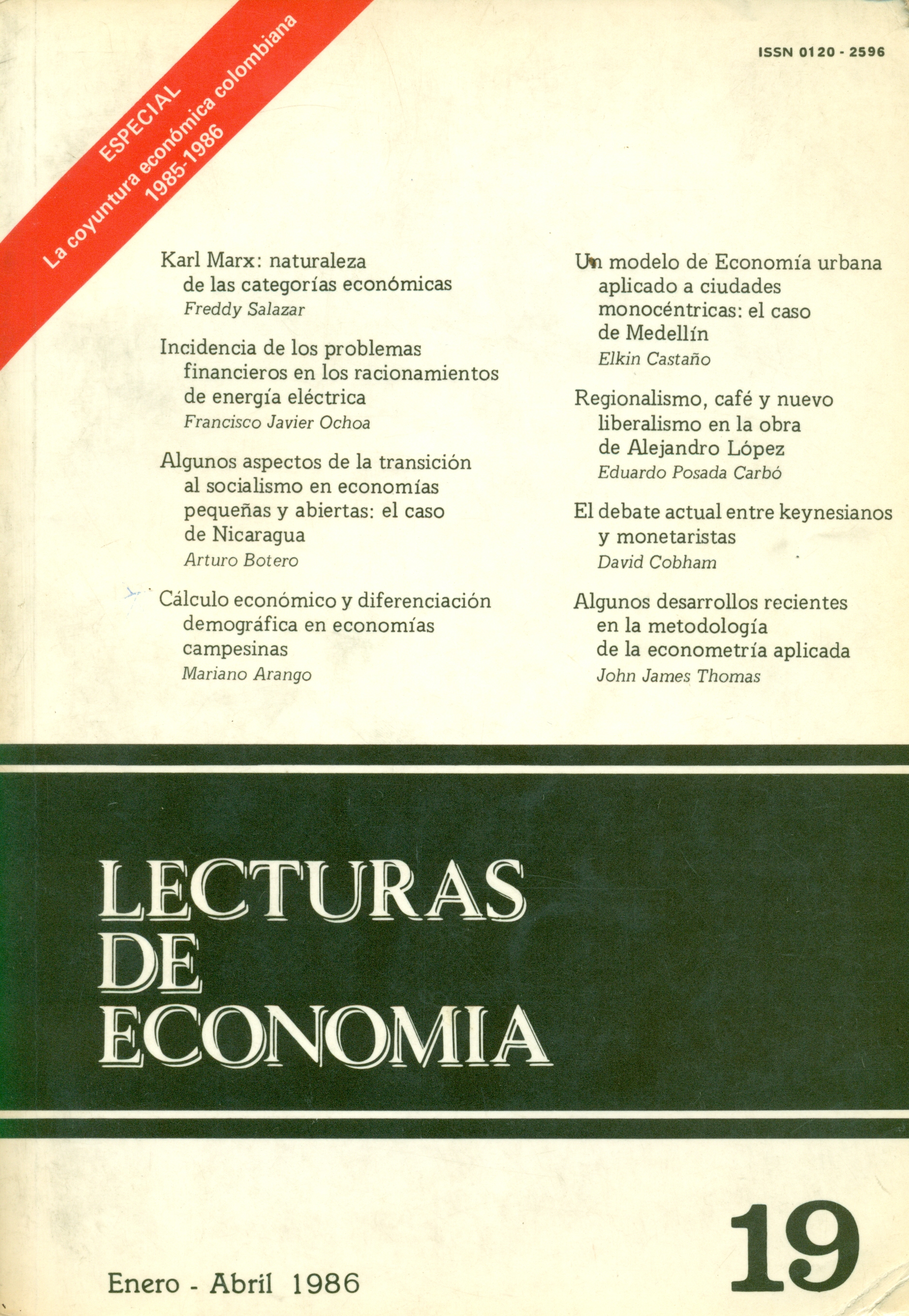Calculo económico y diferenciación demográfica en economía campesinas: los casos del oriente antioqueño, Córdoba y Sucre
DOI:
https://doi.org/10.17533/udea.le.n19a8080Abstract
• Resumen: El presente artículo confronta algunas importantes teorías sobre las economías campesinas con los resultados de dos investigaciones realizados en las regiones campesinas del Oriente antioqueño, Córdoba y Sucre, donde se encuestaron respectivamente 616, 385 y 404 unidades de producción. Estas resultaron con más de un 800% del valor de su producción integrada al mercado e impregnadas por relaciones salariales, ante todo por razones estacionales, en todos los rangos de tamaño, pero sin que esto eliminara su condición de economías campesinas. A consecuencia de lo anterior, los productores toman sus decisiones económicas sobre el aumento de unos cultivos y reducción de otros con base en sus cuotas de ganancia y no de acuerdo con sus precios de costo. Esta forma de cálculo económico está condicionada por la diversificación de riesgos a través de policultivo, la ampliación de la explotación a medida que aumenta su tamaño y el compromiso de sólo una parte pequeña del patrimonio con el crédito adquirido. Asimismo, se encontró cierto grado de diferenciación demográfica en estas explotaciones campesinas.
• Abstract: This article considers various theories about peasant economies in the light of two studies in the regions of Oriente antioqueño, Córdoba and Sucre. These studies found more than eighty percent of the value of production integrated into the market and salary oriented without vitiating the truly peasant nature of these economies. Producers were found to make decisions about future levels of production on the basis of relative profitability not on costs. To some extent this general finding has to be modified allow for diversification of risk, with lot size and with levels of indebtedness. There were also some important demographic factors.
Downloads
Downloads
Published
How to Cite
Issue
Section
License
This page, by Universidad de Antioquia, is licensed under a Creative Commons Attribution License.
Authors who publish with this journal agree to retain copyright and grant the journal right of first publication, with the article licensed under a Creative Commons Attribution-NonCommercial-ShareAlike License allowing others to share it as long as they acknowledge its authorship and original publication in this journal.
Authors can enter into separate, additional contractual arrangements for the non-exclusive distribution of the journal's published version of the work (e.g., post it to an institutional repository or publish it in a book), provided that these arrangements be not for profit and the journal be acknowledged as the original source of publication.
Authors are permitted and encouraged to post their papers online (e.g., in institutional repositories or on their websites), as it can lead to valuable exchanges as well as greater citation of the published work.







